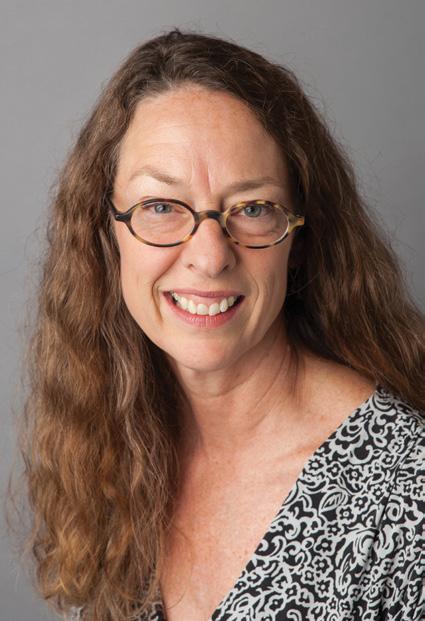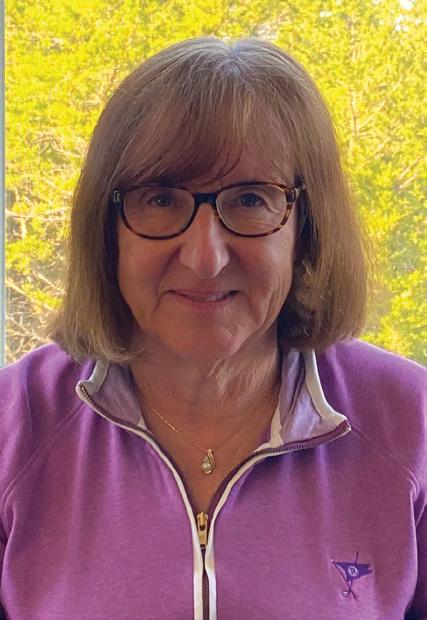
3 minute read
Faculty on the front lines: JMU Nursing faculty assist with COVID-19 contact tracing efforts
By Victoria Martineau Heim
Advertisement
– Maria Gilson deValpine
When news of the COVID-19 outbreak reached the JMU and Harrisonburg local community earlier this year, School of Nursing faculty were ready to help. Professor Maria Gilson deValpine recalled, “When the local outbreak revealed itself, I just called up [friend Deborah Bundy-Carpenter, Nurse Manager for the Central Shenandoah Health District] and asked if I could help out. She said YES.”
Professor Emerita Sharon Zook shared the same call to action. “I was feeling useless being retired during the worst healthcare crisis of our era,” she said. “I contacted a NP [nurse practitioner] friend who works for VDH [Virginia Department of Health] and asked if there was anything I could do to help. Within ten minutes I got an email from Deborah Bundy-Carpenter asking me to call her. I did, talked for a few minutes, and she hired me.”
Both deValpine and Zook, along with Professor Linda Hulton and JMU Student Health Services Director of Nursing and Clinical Operations Kristina Blyer (’16 DNP), began work on case investigations and contact tracing for the Central Shenandoah Health District immediately.
According to the CDC, contract tracing is described as a “part of the process of supporting patients and warning contacts of exposure in order to stop chains of transmission” (cdc.gov, 2020). As Hulton explained, “This is good ole fashioned ‘shoe leather epidemiology’ where you look for contacts of people who test positive, offer them testing, information on how to take care of themselves, and to care for and protect those around them.”
Social distancing, contact tracing, isolation, testing and treatment form the basis of the five-part public health strategy to control the SARS CoV2 pandemic in the United States and elsewhere. When these interventions are implemented simultaneously, transmission rates drop. Contact tracers help people understand why it is important to isolate if they are infected and to quarantine if they are exposed. They find resources for food, access to communication, and help those affected with explaining their situation and need to isolate to their employers.

– Sharon Zook
Epidemiology is not the only facet of the contact tracing effort, though. Hulton said, “…[T]here are multiple teams working on this outbreak. Some are nurses, some are dropping off food/supplies to people who are isolated, etc. There is also an active ‘language’ interpreters [team] due to the multiple languages [spoken in this area].” When cases and their contacts understand and gain the support they need to stay home, they do what is necessary to keep everyone safe. “This [contact tracing] is not new in public health,” deValpine said. ”It is done all the time with communicable diseases like tuberculosis or sexually transmitted infections and it effectively stops transmission to protect the health of the public.”
Nurses in particular possess unique skills that allow them to serve as especially effective case investigators, contact tracers, and general liaisons between the health department and the community. “Nurses are particularly good at case investigation and contact tracing by virtue of their education in therapeutic communication, ethical principles regarding social justice… and other invaluable interpersonal communication skills,” deValpine said. Building a rapport with patients, lending an empathetic ear and being sensitive to different sociocultural circumstances are just a few of these important skills JMU nursing faculty pass on to their students and which have proven invaluable during this pandemic.
No matter what their individual role at JMU, each faculty member shared the same sentiment regarding their involvement in the contact tracing effort—a passion for caring for the community. “I, unlike Maria and Linda, have never been a community/public health nurse,” Zook shared. “I am enjoying a new facet of nursing, especially talking with and educating those with COVID-19. I am happy to be helping instead of sitting on the sidelines.” deValpine concluded, “I’m really enjoying being a public health nurse again, even if part-time. This work was my passion for much of my career in practice, and I relish the chance to put my skills to a good purpose again.”











